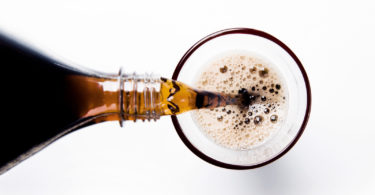15 Negative Effects of Fizzy Drinks: The Bubbles That Harm
Fizzy drinks, also known as soda or carbonated beverages, are a popular choice for many due to their taste and the refreshment they provide. However, the long-term consumption of these beverages can have several negative effects on your health. Here are 15 reasons why you might want to reconsider your fizzy drink habit:
1. Contributes to Weight Gain
The high sugar content in many fizzy drinks can lead to increased calorie intake and weight gain.
2. Diabetes Risk
Regular consumption of sugary fizzy drinks is associated with an increased risk of developing type 2 diabetes.
3. Heart Disease
Fizzy drinks, particularly those with high-fructose corn syrup, can raise triglycerides and cholesterol levels, contributing to heart disease.
4. Tooth Decay
The acidity and sugar in fizzy drinks can erode tooth enamel and lead to cavities and tooth decay.
5. Bone Health
Some studies suggest that the phosphoric acid in fizzy drinks can lead to a decrease in bone density, increasing the risk of osteoporosis.
6. Osteoarthritis
There is a link between the consumption of fizzy drinks, particularly cola, and an increased risk of osteoarthritis.
7. Metabolic Syndrome
Fizzy drink consumption has been associated with an increased risk of metabolic syndrome, a group of conditions that increase the risk of heart disease, stroke, and diabetes.
8. Increased Blood Pressure
Some fizzy drinks, especially those containing caffeine, can cause a temporary increase in blood pressure.
9. Kidney Health
Excessive consumption of fizzy drinks may increase the risk of kidney diseases, including chronic kidney disease and kidney stones.
10. Decline in Cognitive Function
Studies have shown that high intake of fizzy drinks, particularly among older adults, may be linked to a decline in cognitive functions.
11. Gastrointestinal Issues
Carbonation in fizzy drinks can cause bloating, gas, and upset stomach, contributing to gastrointestinal discomfort.
12. Dehydration
Despite being a liquid, fizzy drinks can actually lead to dehydration due to their diuretic properties and high sugar content.
13. Nutrient Deficiencies
Fizzy drinks can displace more nutritious beverages and foods from your diet, leading to potential nutrient deficiencies.
14. Sleep Disruptions
Caffeine in fizzy drinks can interfere with sleep patterns, leading to poor sleep quality and insomnia.
15. Increased Risk of Certain Cancers
Some studies have suggested a link between the consumption of artificially sweetened fizzy drinks and an increased risk of certain types of cancer.
Tips for Reducing Fizzy Drink Intake
- Water Infusions: Replace fizzy drinks with infused water for a refreshing alternative.
- Gradual Reduction: Gradually reduce your fizzy drink intake to minimize withdrawal symptoms.
- Healthy Alternatives: Opt for healthier beverages like green tea, herbal tea, or freshly squeezed juices.
- Portion Control: If you choose to consume fizzy drinks, consider smaller portions to limit calorie and sugar intake.
- Education: Understand the ingredients and nutritional content of the beverages you consume.
Conclusion
While the occasional fizzy drink may not harm you, it’s important to be aware of the potential health risks associated with regular consumption. By making mindful choices and opting for healthier alternatives, you can reduce the negative effects of fizzy drinks on your body and improve your overall health. Always consult with a healthcare professional for personalized advice on diet and lifestyle changes.

